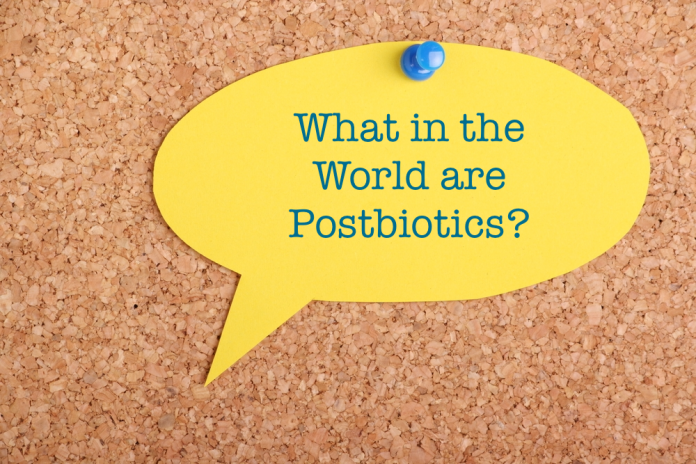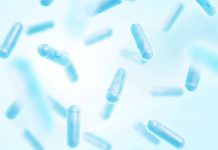
People tend to gravitate toward things that appear or happen in threes, and so now we have the addition of postbiotics to the duo of prebiotics and probiotics. Actually, postbiotics have been around for a long time and have been the subject of investigation, but they have finally been given a name. Now they are a hot topic in the health arena.
What are postbiotics?
Postbiotics are the byproducts of the fermentation activity that probiotics (beneficial bacteria) perform in the intestinal tract. When probiotics get their nourishment from prebiotics, the waste left behind is known as postbiotics.
That doesn’t mean postbiotics are garbage; far from it. In fact, investigators have been discovering many health benefits associated with postbiotics, as well as a few side effects. Just like prebiotics and probiotics, every individual has his or her own response to the substances left behind by this third cog in the wheel, as it were.
What are some of these postbiotics?
Among them are short-chain fatty acids (e.g., acetate, butyrate, propionate), which are a major energy source for the colon; lipopolysaccharides (e.g., polysaccharide A, exopolysaccharide), indole, teichoic acid, p40 molecule, and lactocepin. Keep these names in mind when shopping for postbiotics.
Read about 8 reasons to take probiotics
What are some sources of postbiotics?
You couldn’t have postbiotics without prebiotics and probiotics. In fact, beneficial bacteria are a source of postbiotics. Therefore, foods such as yogurt, kefir, fermented vegetables, sauerkraut, kimchee, tempeh, kombucha, buttermilk, soft cheeses, and miso are also sources of postbiotics.
If you want to naturally boost your body’s production of postbiotics, include these foods or supplements in your diet often:
- Apple cider vinegar and coconut vinegar.
- Spirulina and chlorella are two types of algae that help reduce inflammation, nourish probiotics, and promote detoxification of the body.
- Mycelium, which produces mushrooms and contains antiviral and antimicrobial agents as well as enzymes. Mycelium also supports bacterial growth in the microbiome.
- Grape waste, also known as grape pomace, which are the solid residuals of grapes, olives, and other fruit. It can contain the skin, stems, seeds, and pulp of the fruits. This pomace nourishes probiotics, which then enhances postbiotics.
- Shilajit, an ancient herb that has a high level of fulvic acid as well as antiviral and anti-inflammatory powers.
- Bacterial protease, a group of enzymes that support immune function, lower levels of pathogens, help the body cope with stress and improve gut health.
Read about perfect marriage of prebiotics and probiotics: synbiotics
What are the benefits of postbiotics?
So far research indicates that postbiotics provide a variety of benefits. For example:
- Postbiotics may be used instead of probiotics for individuals who cannot tolerate taking live microorganisms, such as those who have an impaired immune system.
- Unlike probiotics, postbiotics are not alive, so they are more stable and have a longer shelf life.
- Postbiotics don’t require stringent storage and production conditions to keep them alive, which makes them good candidates for places with unreliable or no refrigeration.
- There’s evidence that when probiotic bacteria are destroyed by heat in the gastrointestinal tract, they continue to help the body by speeding up the healing of the intestinal system.
- These substances help reduce inflammatory diseases, including irritable bowel syndrome and inflammatory bowel disease, as well as other inflammatory conditions.
- Postbiotics may reduce allergic reactions, such as conjunctivitis or dermatitis.
- They can be used to ease joint pain associated with inflammation.
- They may help with leaky gut syndrome, dysbiosis, and small intestine bacterial overgrowth.
- They have some antimicrobial abilities, which makes them great support for immune system health. Some of the common pathogens they may destroy are Escherichia coli, Salmonella enterica, Clostridium perfringens, and Listeria monocytogenes.
- It may help reduce blood sugar levels and thus prevent diabetes by improving how the body uses insulin.
How do postbiotics work?
Research suggests postbiotics work in several ways. They may:
- Help restore the body’s immune response by enhancing the health and welfare of the microbiome.
- Support communication between the immune system and the microbes in the gut via neurotransmitters.
- Improve and enhance the function of the immune system.
- Have a positive impact on cell migration, proliferation, and death.
One warning about postbiotics is that a byproduct of fermentation is histamine, which may make irritable bowel syndrome symptoms worse. Gas produced by fermentation may also result in bloating, cramping, and gas in people with sensitive guts.
Do you need to use postbiotic supplements?
The best way to get postbiotics is to eat more of the foods that naturally promote their production. Be sure to consume at least 25 grams of fiber daily and to enjoy lots of fruits and vegetables. If you’re not eating enough fiber, you may also want to supplement your efforts with a postbiotic supplement. The top three ingredients to look for are acetate butyrate, and propionate, but especially butyrate. A supplement that contains both prebiotics and probiotics promotes the production of postbiotics as well.
Bottom line
The term “postbiotics” is new to dietitians and the general public, but these substances definitely aren’t new! What is new is our awareness, knowledge, and appreciation of them and how they can benefit our health.










